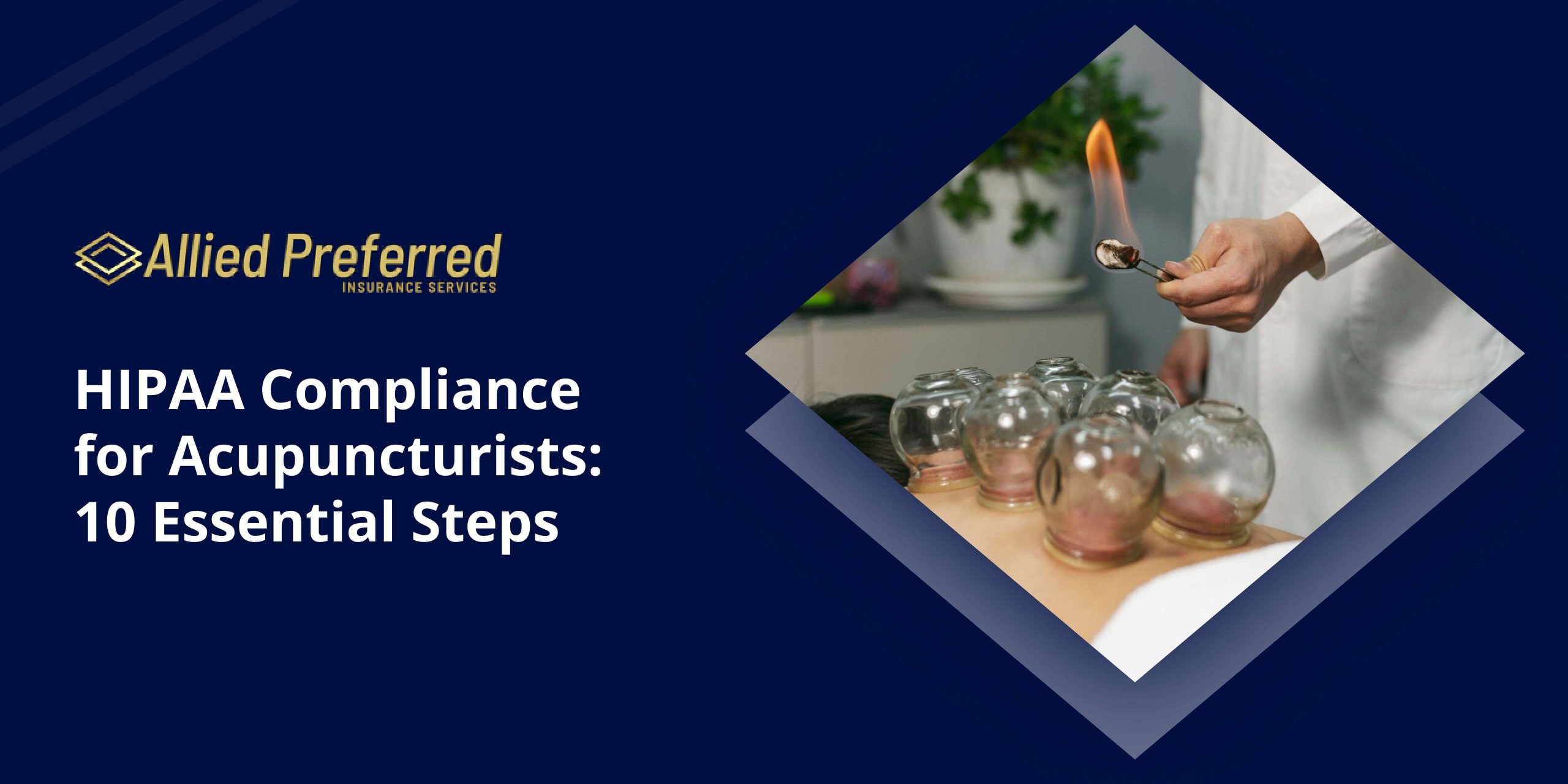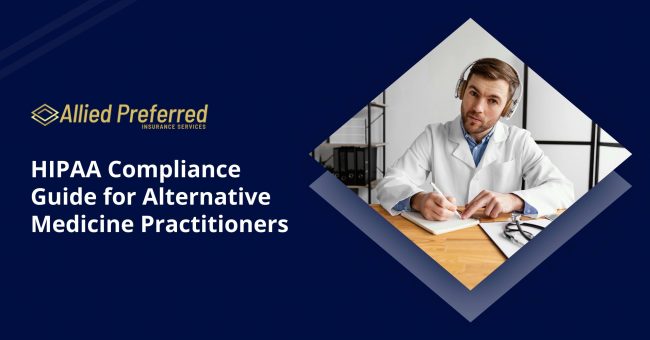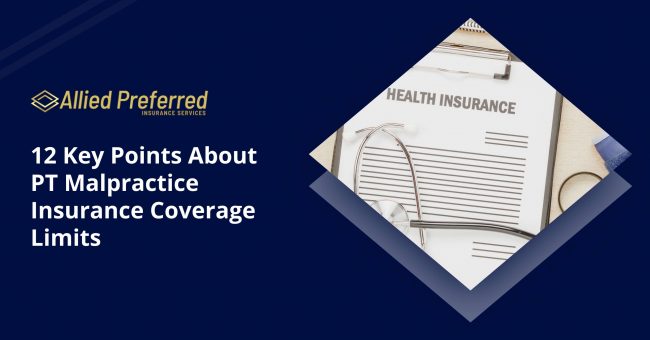As an acupuncturist, protecting your patients’ privacy is crucial. HIPAA compliance isn’t just about following rules – it’s about building trust with your clients. Here are 10 key steps to keep your practice HIPAA-compliant and your patients’ information safe.
Key Takeaways:
-
– Understand common HIPAA violations
– Implement robust data encryption
– Provide regular staff training
– Develop and document clear policies
– Use HIPAA-compliant software solutions
– Regularly assess and update security measures
– Secure mobile devices and communication tools
– Conduct routine risk assessments
– Prepare a breach response plan
– Partner with HIPAA-compliant service providers
1. Encrypt All Patient Data
Think of encryption like a secret code for your patients’ info. It scrambles the data so only people with the right “key” can read it. This is super important for things like:
- Patient records
- Billing information
- Email communications
- Electronic health records (EHRs)
- Appointment schedules
Using strong encryption is like putting an extra-tough lock on your patients’ private details. It’s a must-have to keep nosy people out and stay on the right side of HIPAA rules. Encryption should be applied to data at rest (stored on devices or servers) and data in transit (being sent over networks).
HIPAA-compliant software can make encryption much easier to manage. These tools are designed to keep patient data safe without making your job harder. They often include features like automatic encryption and secure data backups.
2. Implement Strong Cybersecurity Measures
Cybersecurity is like having a good immune system for your computer network. Just as you help patients boost their health, you need to keep your digital systems healthy too. This means:
- Keeping your antivirus software up-to-date
- Using strong passwords (think of a phrase only you would know)
- Setting up multi-factor authentication (like needing both a password and a code sent to your phone)
- Regularly updating and patching all software and operating systems
- Using firewalls to protect your network from external threats
- Implementing intrusion detection systems to monitor for suspicious activity
These steps make it much harder for hackers to break in and steal patient info. It’s like putting multiple locks on your clinic’s door – the more barriers, the better. Regular security audits can help identify vulnerabilities before they’re exploited.
For more info on protecting your practice, check out our insurance options for healthcare providers.
3. Control Access to Patient Information
Imagine if anyone could walk into your treatment rooms without permission – that wouldn’t be okay, right? The same goes for patient data. You need to control who can see what. This means:
- Setting up user accounts for each staff member
- Only giving access to the info each person needs for their job
- Using strong passwords and changing them regularly
- Implementing role-based access control (RBAC) to restrict data access based on job functions
- Regularly reviewing and updating access permissions
- Logging and monitoring all data access attempts
By limiting who can see patient details, you’re reducing the risk of accidental leaks or misuse. It’s all about respecting your patients’ privacy and keeping their trust. Regular audits of who has access to what information can help ensure that permissions are up-to-date and appropriate.
Learn more about protecting patient data with our HIPAA compliance resources.
4. Secure Mobile Devices
These days, we use our phones and tablets for everything – including work. But these devices can be easily lost or stolen. To keep patient info safe on mobile devices:
- Use passcodes or fingerprint locks
- Install tracking apps to find lost devices
- Set up remote wiping in case a device is stolen
- Encrypt all data stored on mobile devices
- Use mobile device management (MDM) software to enforce security policies
- Regularly update and patch mobile operating systems and apps
Think of it like putting a really good lock on a briefcase full of patient files. You want to make sure that even if someone gets their hands on the device, they can’t access what’s inside. It’s also important to have clear policies about using personal devices for work purposes (BYOD policies) to ensure all devices accessing patient data are properly secured.
For more tips on protecting your practice, visit our resources for medicine practitioners.
5. Provide Regular HIPAA Training for Staff
HIPAA rules can be tricky, and they sometimes change. That’s why it’s super important to keep your whole team up to speed. Regular training helps everyone understand:
- What info is considered private
- How to handle patient data safely
- What to do if there’s a problem (like a data breach)
- The latest updates to HIPAA regulations
- Common security threats and how to avoid them
- Proper use of HIPAA-compliant software and tools
Think of it like teaching a new acupuncture technique – everyone needs to practice to get it right. The more your team knows about HIPAA, the safer your patients’ info will be. Consider implementing annual refresher courses and quick monthly updates to keep HIPAA compliance top of mind for all staff members.
6. Document Policies and Procedures
Having clear, written rules for handling patient info is super important. It’s like having a recipe book for HIPAA compliance. Your policy manual should cover:
- How to safely store and share patient data
- What to do in case of a data breach
- Rules for using work computers and devices
- Procedures for secure disposal of patient information
- Guidelines for communicating with patients electronically
- Steps for conducting internal HIPAA audits
Make sure to update these policies regularly and review them with your team. This way, everyone knows exactly what to do to keep patient info safe. Consider creating a digital version of your policy manual that’s easily accessible to all staff members, and implement a system to track that everyone has read and understood the policies.
For more guidance on running your practice smoothly, check out our services for healthcare providers.
7. Use HIPAA-Compliant Communication Tools
When you’re talking about patient info, you need to use the right tools. This includes:
- Secure email systems that encrypt messages
- Safe messaging apps for quick team chats
- HIPAA-compliant video platforms for virtual appointments
- Secure file sharing solutions for exchanging patient documents
- Encrypted voice communication systems for phone consultations
Using these special tools is like having a private conversation in a soundproof room – it keeps patient details from being overheard by the wrong people. When selecting communication tools, look for those that offer end-to-end encryption and have signed Business Associate Agreements (BAAs) to ensure they meet HIPAA requirements.
8. Conduct Regular Risk Assessments
Just like you check patients for health issues, you need to check your practice for HIPAA risks. This means:
- Looking for weak spots in your security
- Testing your systems to make sure they’re working right
- Fixing any problems you find quickly
- Evaluating physical security measures in your clinic
- Assessing the security practices of your business associates
- Reviewing and updating your risk management plan
Regular check-ups help catch small issues before they become big problems. It’s all about staying ahead of potential HIPAA violations. Consider using a HIPAA risk assessment tool or hiring a professional to conduct thorough evaluations at least annually.
For more insights on protecting your practice, visit our healthcare blog.
9. Implement a Breach Response Plan
Even with the best precautions, sometimes things go wrong. Having a plan for data breaches is like having a first aid kit – you hope you never need it, but you’re glad it’s there if you do. Your plan should include:
- Steps to contain the breach and stop more data loss
- How to notify affected patients
- When and how to report the breach to authorities
- Procedures for conducting a post-breach analysis
- Steps for updating security measures based on lessons learned
- Guidelines for communicating with media and the public if necessary
Being prepared can help you act quickly and minimize damage if a breach happens. Regularly review and update your breach response plan, and consider conducting mock breach scenarios to test your team’s readiness.
10. Partner with HIPAA-Compliant Service Providers
You’re careful with patient info, and your partners should be too. When working with other companies (like billing services or software providers), make sure they follow HIPAA rules. Ask them:
- How they protect patient data
- If they’ve had any security breaches before
- What they do to stay HIPAA compliant
- If they conduct regular security audits
- How they train their staff on HIPAA compliance
- If they’re willing to sign a Business Associate Agreement (BAA)
Choosing the right partners is like picking a good acupuncture needle – the right tools make all the difference in keeping your practice safe and effective. Regularly review your partnerships to ensure ongoing compliance and consider including HIPAA compliance requirements in your contracts with service providers.
For reliable HIPAA-compliant solutions, check out our HIPAA compliance software options.
Wrapping Up: Your HIPAA Compliance Checklist
Keeping up with HIPAA might seem tough, but it’s all about taking it step by step. By following these 10 steps, you’re well on your way to protecting your patients’ privacy and keeping your practice safe.
Remember, HIPAA compliance isn’t a one-time thing – it’s an ongoing process. Keep learning, stay alert, and don’t be afraid to ask for help when you need it. Regular reviews and updates of your HIPAA compliance strategy are essential to stay ahead of new threats and regulatory changes.
Ready to take your HIPAA compliance to the next level? Check out our acupuncturist malpractice insurance for comprehensive protection and peace of mind.
By staying on top of HIPAA compliance, you’re not just following rules – you’re showing your patients that you care about their privacy and trust. Keep up the great work in providing safe, effective care! Remember, HIPAA compliance is an investment in your practice’s reputation and your patients’ peace of mind.






